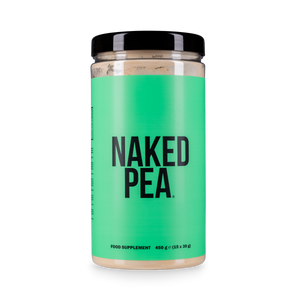If you've spent much time in the gym or looking into improving your physique, supporting your overall health, building muscle, or getting fit, you've likely come across information that discusses BCAAs.
The term BCAAs is short for branched chain amino acids, which are the building blocks of protein.
There are three BCAAs: leucine, isoleucine, and valine.
While it's not imperative to memorize the names of the BCAAs, it is helpful to understand that these three amino acids have a unique chemical structure.
 Due to this structure, there are specific benefits of BCAAs that go above and beyond the benefits of amino acids and protein in general for athletes and everyday individuals looking to optimize their health and reach body composition or fitness-related goals.
Due to this structure, there are specific benefits of BCAAs that go above and beyond the benefits of amino acids and protein in general for athletes and everyday individuals looking to optimize their health and reach body composition or fitness-related goals.
Below, we've written a BCAA guide to provide a zoomed-out look at branched chain amino acids. It's intended to be a complete, expert-backed resource to help you understand how BCAAs support energy, muscle growth, and recovery.
Note that this guide is part of a series of articles focused on BCAAs that will help athletes, gym goers, and anyone taking or considering taking BCAAs decide how to best use BCAA supplements.
What Are BCAAs, and Why Are They Important?
 The human body uses 20 different amino acids, which are the building blocks of protein.
The human body uses 20 different amino acids, which are the building blocks of protein.
Like letters in the alphabet, the 20 amino acids can be combined and arranged in nearly countless configurations to make all of the proteins the body needs.
Indeed, although we tend to think of protein as only forming skeletal muscles or playing a predominant role in building muscle, proteins serve many roles in the body, such as building muscle, catalyzing reactions (as enzymes), and manufacturing hormones.
As mentioned, the term BCAAs refers to branched-chain amino acids and includes three specific amino acids of the 20 aforementioned amino acids in the human body.
The BCAAs include leucine, isoleucine, and valine, all of which are considered essential amino acids because they must be consumed in the diet or through supplements because the body cannot manufacture them internally.
 What differentiates BCAAs from other essential amino acids (or nonessential amino acids, which are those that the body can manufacture internally) is their unique chemical structure.
What differentiates BCAAs from other essential amino acids (or nonessential amino acids, which are those that the body can manufacture internally) is their unique chemical structure.
As the name suggests, branched-chain amino acids have a chain or string of constituent molecules branching off one side of the amino acid molecule.
This structure enables BCAAs to bypass the normal digestive and absorptive processes and be taken up and used for energy directly in muscle fibers.
Although there are 20 different amino acids found in the human body, the three BCAAs together make up nearly 40% of the total amino acids content in the body and about 14 to 18% of the amino acid content found in the muscles.
BCAAs play several important roles in the body, such as building and repairing muscle tissue and producing energy.
Therefore, having an adequate intake of leucine, isoleucine, and valine is critical for optimizing your overall health and exercise performance.
Proven Benefits of BCAA Supplementation
 BCAAs have been heavily studied over the years.
BCAAs have been heavily studied over the years.
As such, there are a number of research-backed benefits of BCAAs, including the following:
-
Leucine: Leucine is involved in protein synthesis, building muscle, tissue regeneration, and metabolism.
-
Isoleucine: Isoleucine produces various hormones, helps regulate blood sugar levels, and supports wound healing and the immune system.
-
Valine: Valine shares some of the same functions of leucine and isoleucine, respectively, such as aiding in muscle protein synthesis, repairing tissues, and supporting metabolism.
Taken together, here are some of the key benefits of BCAAs:
-
Boosting muscle growth (leucine’s mTOR activation)
-
Reducing muscle soreness and DOMS
-
Enhancing endurance and energy during workouts
-
Supporting recovery post-training
-
Reducing perceptions of fatigue and circulating oxygen levels, allowing you to exercise longer
-
Regulating blood sugar levels.
When Should You Take BCAAs?

BCAAs can be taken at any point in the day, and often times, using BCAAs several times throughout the day is the best way to maximize the benefits of BCAA supplements..
There are benefits of BCAAs before, during, and after workouts.
Here are some tips for deciding when you should take BCAAs based on your goals:
-
Pre-workout: for energy and muscle preservation
-
Intra-workout: for endurance support
-
Post-workout: for recovery
-
Special note: fasted training, calorie cutting, or endurance athletes
You can learn more about when to take BCAAs via our BCAA timing chart here.
How Much BCAA Should You Take?

As with most supplements for athletic performance, the optimal dosage for BCAAs will depend somewhat on your body size, diet, and goals.
The Recommended Dietary Allowance (RDA) of BCAAs is 45 mg/kg/day for leucine and 22.5 mg/kg/day for isoleucine and valine.
This works out to approximately 20.5 mg/pound per day of leucine and 10 mg per pound of isoleucine and valine per day.
For example, an individual weighing 180 pounds would aim for 36 grams of BCAAs per day.
It is generally recommended to space out BCAA intake throughout the day, with each serving or dosage being around 5-10 grams.
This enhances absorption and maximizes the benefits of BCAAs throughout a 24-hour window.
However, excessive intake can potentially lead to a buildup of ammonia in the body, so more is not necessarily better, let alone safe.
Keep in mind that BCAAs are also found in protein-rich foods, so you should not aim to meet your BCAA intake solely through supplements.
To that end, for best results, consider speaking with a registered dietitian or nutritionist to help determine the optimum dosage of BCAAs for weight loss.
How to Use BCAAs Effectively
BCAAs come in a variety of forms, the most common being capsules and powders.
Either form can provide similar benefits so long as the quality and purity of the specific products are similar.
Capsules are convenient but tend to be more expensive per serving, lower in dosage, and slower to absorb.
BCAA powders offer the benefit of adjusting the dosage precisely rather than being locked into set intervals.
Powders tend to be absorbed faster, which is ideal for fueling with BCAAs during a workout.
You can mix BCAA powder into water, sports drinks, protein shakes, or even semi-solid foods like yogurt and oatmeal.
Keep in mind that no matter what format you prefer, it is important to take BCAAs with enough water to enhance absorption and reduce the risk of digestive distress.
Staying hydrated also will support kidney function and reduce strain on your kidneys if you are consuming a lot of protein per day.
You can take BCAAs on rest days to support recovery, though this may or may not be necessary depending on your diet.
If you are already getting an adequate protein intake and consuming protein from a variety of sources, taking BCAAs on rest days is likely unnecessary.
Do You Still Need BCAAs If You Take Protein Powder?

One of the most common questions about using BCAAs is: “Do I still need to take BCAAs if I use protein powder?”
As with most things related to diet, there isn't a universal answer to this question, as it depends on the individual's circumstances.
Let's look at this more closely.
First, it's important to reiterate that BCAAs are amino acids, which means that they are already found in any protein powder.
Moreover, because of the proven benefits of BCAAs for building muscle and supporting exercise recovery, many of the top protein powders designed for athletes already have additional BCAAs added to the formulation to boost BCAA content.
Therefore, taking a BCAA supplement on top of a protein powder can be redundant, even with standard protein powders that don't have additional BCAAs in the amino acid profile.
That said, even if you are using a protein powder, there are situations where BCAAs can provide additional benefits or add value.
For example, taking BCAAs during an endurance workout will help provide usable energy directly to the muscles.
This can help preserve glycogen stores, which will allow you to exercise longer and consume fewer carbs during the session without bonking.
Additionally, if you are in a caloric deficit because you are trying to lose weight or you do your resistance training workouts in a fasted state, taking BCAAs before or after your workout can help preserve muscle tissue and support recovery.
Are BCAAs Right for You?

BCAA supplements can be a great addition to a healthy lifestyle diet and/or a diet geared toward building muscle, losing weight, or enhancing exercise performance.
That said, BCAAs aren't a “magic pill” that will help you go from a couch potato physique to a ripped bodybuilder without doing anything else (read: consume a well-balanced, healthy diet with an appropriate number of calories and perform consistent weightlifting workouts).
Taking BCAAs may also be unnecessary for individuals who already consume a high-protein diet and don't engage in vigorous workouts.
Here are some general guidelines as to who benefits from taking BCAAs:
BCAA supplements are Ideal for:
-
People who are training in a fasted state (such as doing workouts first thing in the morning or with an intermittent fasting diet).
-
Vegan/vegetarian athletes (if the plant-based diet isn't reliably providing any of the essential amino acids).
-
Bodybuilders in the cutting phase or everyday athletes who are in a moderate to significant caloric deficit.
-
Endurance athletes like marathon runners and triathletes.
It may not be necessary to take BCAAs if:
-
Your diet is already high in complete proteins.
-
You’re not training intensely or consistently.
FAQs About BCAAs

Do BCAAs break a fast?
BCAAs capsules do not break a fast.
Pure BCAA powders also do not break a fast.
Protein powder with BCAAs may not break a fast as long as the powder does not contain carbohydrates and you keep the total caloric intake below 50-75 calories of protein.
Note that there are approximately 4 usable kcals in one gram of BCAAs, so 50 calories of protein is about 12 grams of protein.
Can I take BCAAs multiple times a day?
Yes. Taking BCAAS multiple times a day may enhance absorption.
What’s the best BCAA ratio (2:1:1 vs 4:1:1)?
Generally, a BCAA ratio of 2:1:1 (leucine to isoleucine and valine) is recommended, given leucine’s greater efficacy for muscle building.
Are flavored BCAAs bad for you?
Flavored BCAAs aren't necessarily bad for you.
However, artificial sweeteners and sugar alcohols can be damaging to the gut bacteria, and they increase the risk of bloating, gas, and digestive distress.
Make sure to inspect the ingredients label and look at how many flavors are sourced.
Do BCAAs cause weight gain or bloating?
BCAAs should not cause weight gain. In fact, some studies have found that the risk of obesity is lower in individuals whose diets are higher in BCAAs.
Of course, this association doesn't necessarily mean that taking BCAAs will cause you to lose weight.
That said, there are several different ways in which BCAAs can potentially support weight loss, including the following:
Helping build muscle, which increases your metabolic rate so that you burn more calories all day long.
Regulating blood sugar levels, which not only helps control appetite and stabilize energy levels to prevent overeating but may help balance insulin levels to prevent insulin resistance-related weight gain.
Supporting more vigorous, long, and consistent workouts by increasing your endurance during prolonged workouts and decreasing delayed onset muscle soreness by expeditiously repairing damaged muscle fibers.
Key Takeaways
-
BCAAs can support muscle growth and recovery and provide energy during workouts due to their unique structure.
-
Taking BCAAs consistently and spaced out throughout the day may maximize absorption.
Ready to try adding BCAAs to your supplement routine? Check out our premium BCAA powder here.






